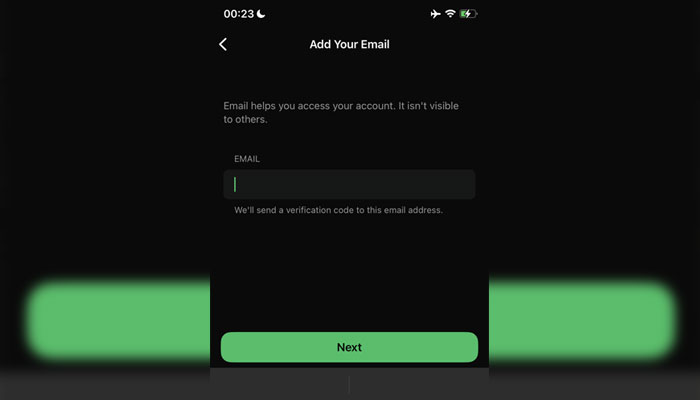WhatsApp rolling out THIS new update
Feature aims at providing "alternate" login method to users other than six-digit verification code received via SMS
In an encouraging news for WhatsApp users, the meta-owned platform is rolling out a new feature that allows users to log into their WhatsApp accounts via email addresses.
The option provides an alternate login method to users, allowing them to log into their WhatsApp accounts without needing the six-digit verification code that is received through SMS.
Although the platform itself has not yet officially announced such development, WaBetaInfo has termed the 23.24.70 WhatsApp update on iOS as "compatible", saying that some users might even be able to experiment with this new feature in the previous update as well.
The feature will especially be useful for users who face temporary issues in receiving the verification code — due to network, SIM, or other issues — required to log into WhatsApp accounts on mobile phones.
Users can simply go to "WhatsApp Settings > Account" to experiment with this new feature.
It is pertinent to know that the meta-owned platform is not abolishing the "traditional" login method — via SMS verification code — but, in fact, is simply aimed to provide an "alternate login method" to the users.
If this feature isn't available to you, be aware that some accounts might get it in the upcoming weeks even though the official changelog hasn't included it.
Furthermore, users are advised to keep updating WhatsApp from the App Store and the TestFlight app to get this feature — in the unlikely event that the feature isn't available to them after installing the update.
-
Shanghai Fusion ‘Artificial Sun’ achieves groundbreaking results with plasma control record
-
Polar vortex ‘exceptional’ disruption: Rare shift signals extreme February winter
-
Netherlands repatriates 3500-year-old Egyptian sculpture looted during Arab Spring
-
Archaeologists recreate 3,500-year-old Egyptian perfumes for modern museums
-
Smartphones in orbit? NASA’s Crew-12 and Artemis II missions to use latest mobile tech
-
Rare deep-sea discovery: ‘School bus-size’ phantom jellyfish spotted in Argentina
-
NASA eyes March moon mission launch following test run setbacks
-
February offers 8 must-see sky events including rare eclipse and planet parade













